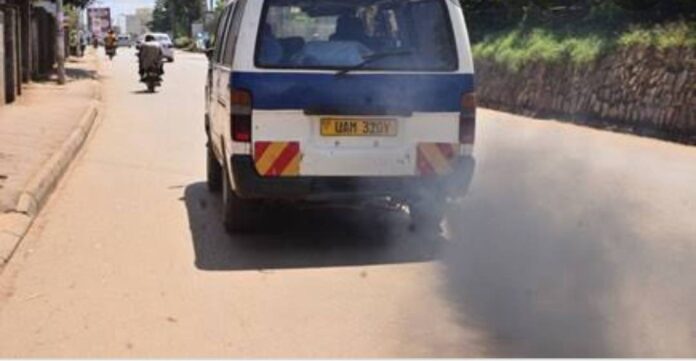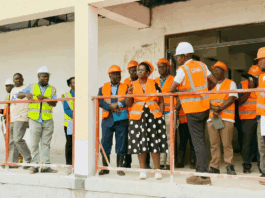Kampala city faces significant challenges of air quality, primarily due to emissions from poorly maintained old motor vehicles deliberately driven on streets, causing alarming levels of air pollution in the city.
Kampala has an estimated 2.7 million registered vehicles, many of which are over 15 years old and lack modern emission control technologies.
The Kampala Lord Mayor, Erias Lukwago, said that the primary contributors to poor-quality air in Kampala city are motor vehicle emissions causing rapid destruction of biodiversity.
Speaking on Thursday, November 14, 2024, with journalists in Kampala, Lukwago said that the air quality in the city has deteriorated beyond accepted limits according to the World Health Organization, with the worst situation recorded in Kawempe division, which contributes significantly to respiratory diseases and other health issues among the city’s residents.
“There is a need for peace reality by planting more tree species that are capable of absorbing emissions,” he said.
According to Lukwago, traffic congestion in the city during peak hours leads to increased idling and emissions from vehicles that use substandard fuel, and some mechanics lack the resources and knowledge necessary for effective vehicle maintenance, resulting in inefficient fuel combustion and higher emissions.
Read Also: Gov’t Reaffirms Commitment to Improve Roads in Kampala City
He, however, suggested that increased car use that elevated pollution levels can be solved through emphasizing alternative transportation methods such as public transport, cycling, and walking to mitigate these effects.
He added that strengthening policies around vehicle emissions and ensuring better enforcement of existing standards is crucial, including regular monitoring of vehicular emissions as part of a broader initiative to improve air quality.
Addressing the issue of poor air quality in Kampala requires a multidimensional approach that combines regulatory measures, public education, and improvements in urban mobility. By focusing on these areas, it may be possible to significantly reduce vehicle emissions and improve the overall air quality in the city.










